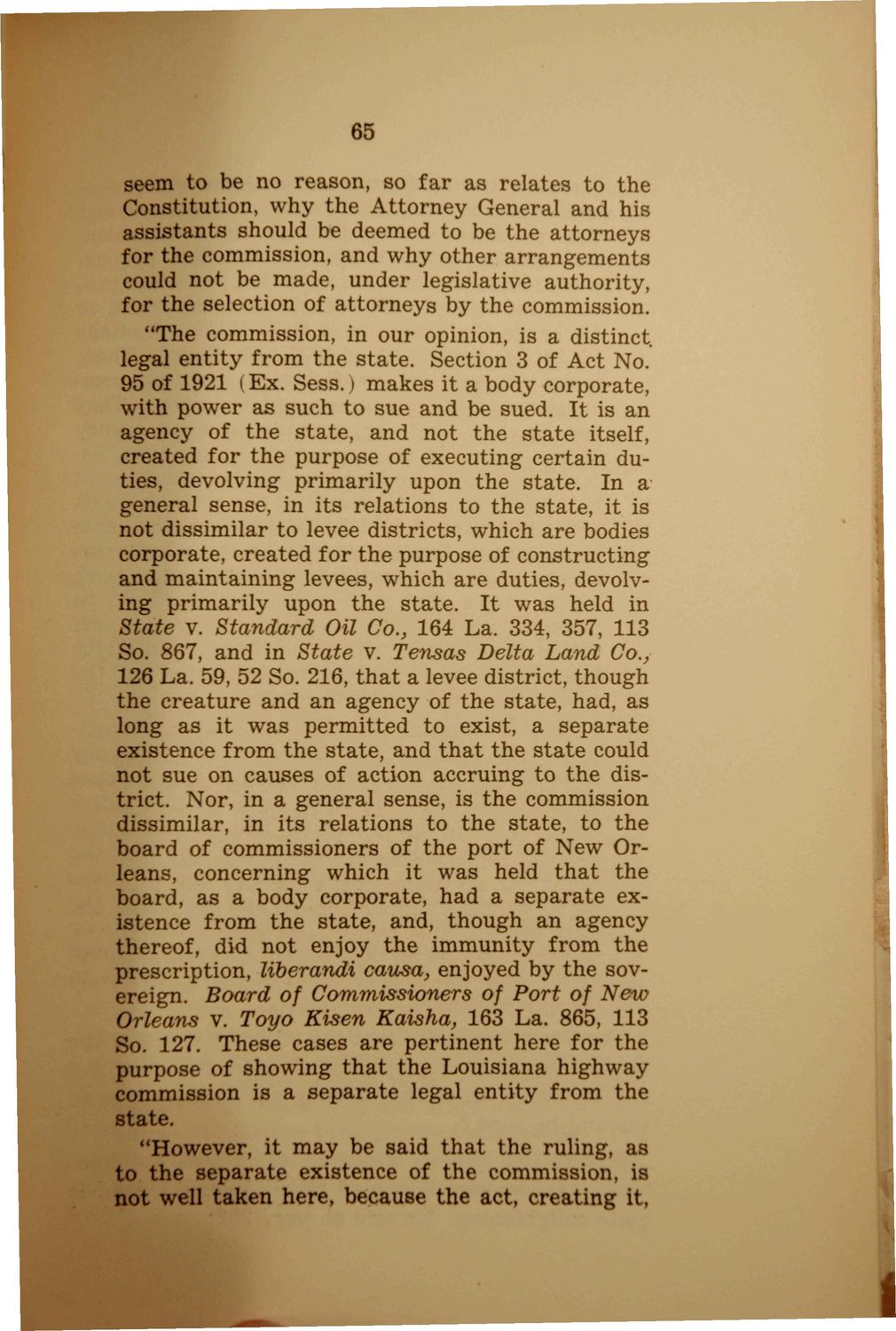| |
| |
Caption: Booklet - UI Charter of Freedom (1942)
This is a reduced-resolution page image for fast online browsing.

EXTRACTED TEXT FROM PAGE:
65 seem to be no reason, so far as relates to the Constitution, why the Attorney General and his assistants should be deemed to be the attorneys for the commission, and why other arrangements could not be made, under legislative authority, for the selection of attorneys by the commission. "The commission, in our opinion, is a distinct legal entity from the state. Section 3 of Act No. 95 of 1921 | Ex. Sess.) makes it a body corporate, with power as such to sue and be sued. It is an agency of the state, and not the state itself, created for the purpose of executing certain duties, devolving primarily upon the state. In a general sense, in its relations to the state, it is not dissimilar to levee districts, which are bodies corporate, created for the purpose of constructing and maintaining levees, which are duties, devolving primarily upon the state. I t was held in State v. Standard Oil Co., 164 La. 334, 357, 113 So. 867, and in State v. Tensas Delta Land Co., 126 La. 59, 52 So. 216, that a levee district, though the creature and an agency of the state, had, as long as it was permitted to exist, a separate existence from the state, and that the state could not sue on causes of action accruing to the district. Nor, in a general sense, is the commission dissimilar, in its relations to the state, to the board of commissioners of the port of New Orleans, concerning which it was held that the board, as a body corporate, had a separate existence from the state, and, though an agency thereof, did not enjoy the immunity from the prescription, liber andi causa, enjoyed by the sovereign. Board of Commissioners of Port of New Orleans v. Toyo Risen Kaisha, 163 La. 865, 113 So. 127. These cases are pertinent here for the purpose of showing that the Louisiana highway commission is a separate legal entity from the state. "However, it may be said that the ruling, as to the separate existence of the commission, is not well taken here, because the act, creating it.
| |